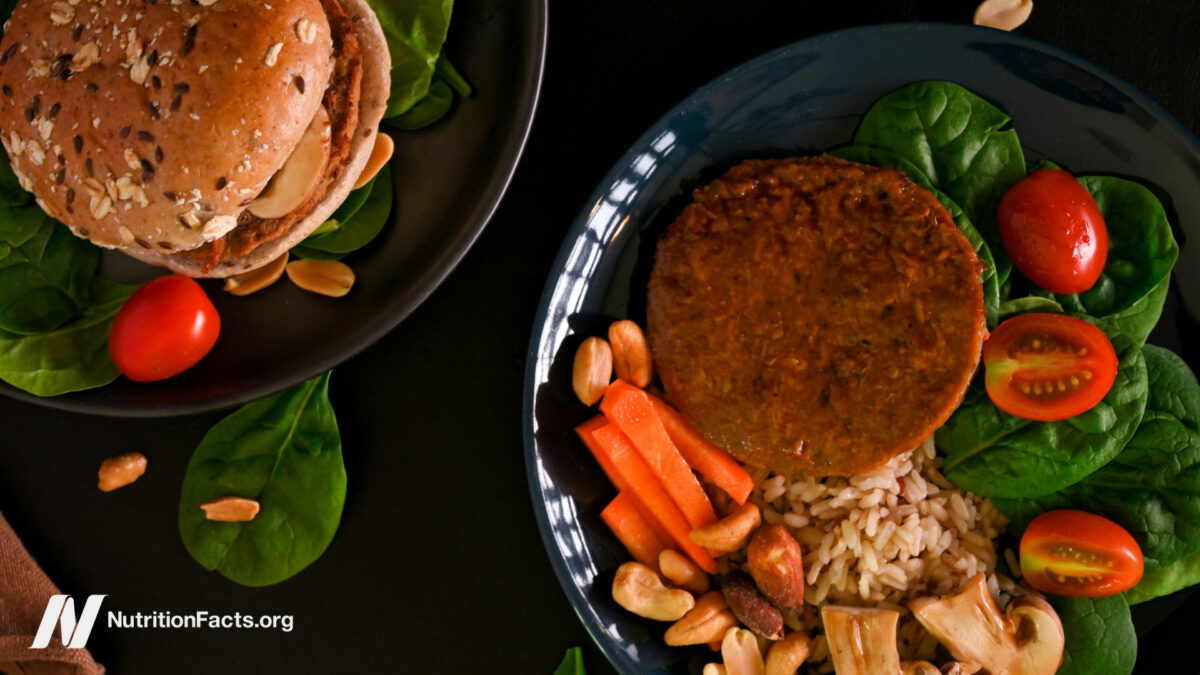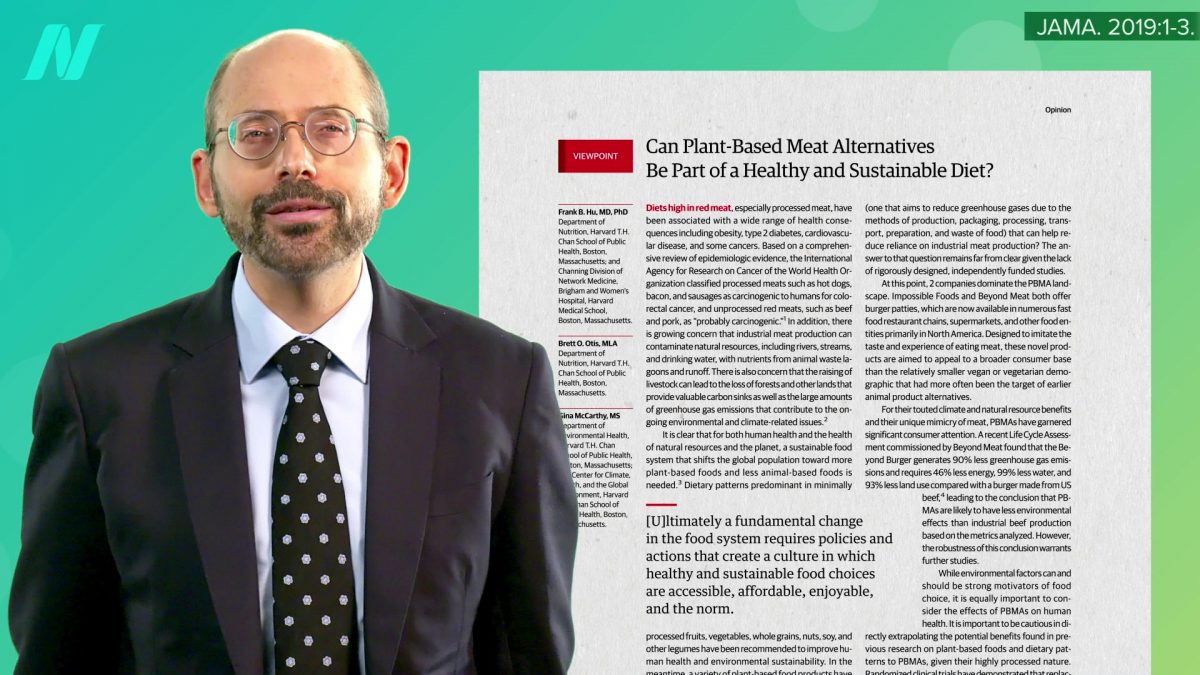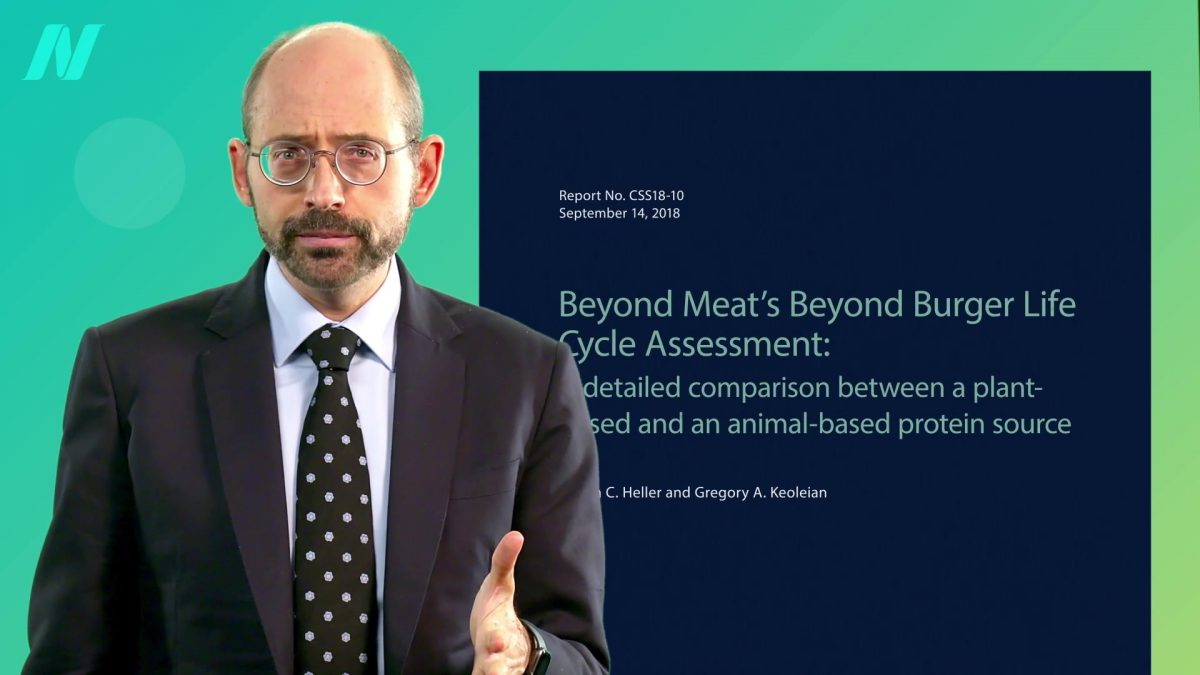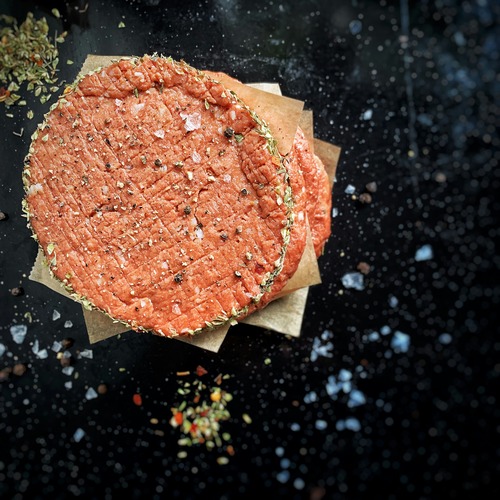
Meat Substitutes
Global meat production has skyrocketed over the last half century with pork and poultry meat now exceeding 100 megatons—a hundred million tons—each year, and this growing demand is unsustainable. Interest has surged in diversified protein sources, given the increasing consensus that reduced meat consumption is critical for addressing both the climate crisis and our burgeoning epidemics of lifestyle diseases. Eating less meat may not only help save the world, but ten million human lives a year. A completely plant-based diet might save $30 trillion from the health benefits alone—just from lowered rates of chronic diseases like cancer, heart disease, and type 2 diabetes.
However, a measure as simple as Meatless Mondays requires dietary change, yet neither sustainability nor health approaches are likely to work with those who love their meat. Swapping in plant-based meat substitutes may help disrupt negativity around reducing meat.
Animal-free alternatives, such as burgers by Impossible Foods and Beyond Meat, were developed to more closely follow the preferences of meat eaters, and environmental lifecycle assessments of products by these two companies determined that switching to either drops greenhouse gas emissions, land use, and water footprints down about 90 percent. Similar analyses on more than 50 different plant-based meats found them to be vastly more sustainable to meat.
Meat alternatives are not as healthful as consuming the whole plant foods themselves—the soy and peas, for example, instead of the processed plant-based burger made from soy and peas—but, compared to meat, they win hands down when it comes to trans fats and cholesterol.
We can address both human health and climate crises at the same time by increasing consumption of plant-based foods, including animal-free meat substitutes, and substantially reducing our consumption of meat, eggs, and dairy.
For substantiation of any statements of fact from the peer-reviewed medical literature, please see the associated videos below.
Image Credit: Unsplash. This image has been modified.
Popular Videos for Meat Substitutes


Are Beyond Meat and the Impossible Burger Healthy?
What happens when you compare the trans fats, saturated fat, sodium, and cholesterol levels in...
Plant-Based Meat Substitutes Put to the Test
What are the effects of plant-based meats on premature puberty, childhood obesity, and hip fracture...
The Environmental Impacts of Plant-Based Meat Substitutes
Environmental assessment of 50 different plant-based meats show them to be vastly more sustainable.All Videos for Meat Substitutes
-

Do the Health Impacts of Ultra-Processed Foods Apply to Plant-Based Meat Alternatives?
If the only ultra-processed food that appears to be killing people is meat, then plant-based meats may be the solution to the ultra-processed foods problem.
-

Are Beyond Meat Plant-Based Meat Alternatives Healthy?
The SWAP-MEAT study puts Beyond Meat products to the test.
-

Are the Health Benefits of Nuts Limited to Those Eating Bad Diets?
Do nut eaters live longer simply because they swap in protein from plants in place of animal protein?
-

The Human Health Effects of Cultivated Meat: Chemical Safety
More than 95 percent of human exposure to industrial pollutants like dioxins and PCBs comes from fish, other meat, and dairy.
-

The Human Health Effects of Cultivated Meat: Antibiotic Resistance
Miracle drug antibiotics are being squandered to compensate for the overcrowded, stressful, unhygienic conditions on factory farms.
-

The Human Health Effects of Cultivated Meat: Food Safety
What are the direct health implications of making clean meat—that is, meat without animals?
-

The Effects of Processed Meat on Lung Function
If the nitrites in foods like ham and bacon cause lung damage, what about “uncured” meat with “no nitrites added”?
-

Is Heme Iron the Reason Meat Is Carcinogenic?
Rectal biopsies taken before and after eating meat determine the potentially DNA-damaging dose of heme.
-

Heme-Induced N-Nitroso Compounds and Fat Oxidation
What do clinical studies show about the role of heme in the formation of a class of carcinogenic compounds?
-

Does Heme Iron Cause Cancer?
Laboratory models suggest that extreme doses of heme iron may be detrimental, but what about the effects of nutritional doses in humans? A look at heme’s carcinogenic effects.
-

What About the Heme in Impossible Burgers?
Is heme just an innocent bystander in the link between meat intake and breast cancer, diabetes, heart disease, stroke, and high blood pressure?
-

The Health Effects of Mycoprotein (Quorn) Products vs. BCAAs in Meat
Clinical trials on Quorn show that it can improve satiety and help people control cholesterol, blood sugar, and insulin levels.
-

Plant-Based Meat Substitutes Put to the Test
What are the effects of plant-based meats on premature puberty, childhood obesity, and hip fracture risk?
-

Plant-Based Protein: Are Pea and Soy Protein Isolates Harmful?
What are the different impacts of plant protein versus animal protein, and do the benefits of plant proteins translate to plant protein isolates?
-

Are Beyond Meat and the Impossible Burger Healthy?
What happens when you compare the trans fats, saturated fat, sodium, and cholesterol levels in plant-based versus animal-based burgers?
-

The Environmental Impacts of Plant-Based Meat Substitutes
Environmental assessment of 50 different plant-based meats show them to be vastly more sustainable.
-

The Healthiest Food Sources of Vitamin B12
What are the best green-light (whole food plant-based) sources of vitamin B12?
-

How to Prevent the Next Pandemic
We need to reform the food system before it’s too late.
-

The Best Diet for Fibroids
The same diet that helps regulate hormones in women may also reduce exposure to endocrine-disrupting pollutants.
-

How Much Soy Is Too Much?
To maintain the low IGF-1 levels associated with a plant-based diet, one should probably eat no more than 3-5 servings of soy foods a day.
-

Carcinogens in the Smell of Frying Bacon
Frying bacon outdoors decreases the concentration of airborne nitrosamine carcinogens.
-

Plant-Based Atkins Diet
Harvard study found that men and women eating low carb diets live significantly shorter lives, but what about the “eco-Atkins diet,” a plant-based, low carbohydrate diet?
